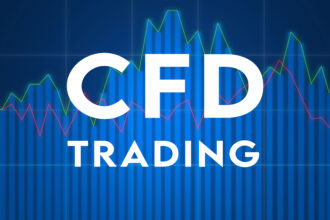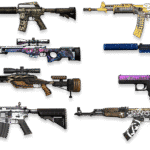The Importance of CFD in Optimizing a Contractor and also its Transaction
A contract for distinctions (CFD) is an understanding completed in financial derivatives trading where the contrasts in the accommodation between the cleared and finishing trade prices are cash-settled. There is no delivery of material goods or protection with CFDs.
Agreements for contrasts is an evolved trading method used by experienced traders and is not allowed in the United States. The CFD has financial critical for the play which differs from a settlement trading price for the close and open trading. The investors for the collections with huge security with especially famous FX and products. CFDs are cash-settled but usually permit abundant margin trading so that investors require only put up an undersized portion of the contract’s abstract profit.
Performance of Contract for Differences (CFD)
CFDs authorize traders to trade in the price direction of securities and derivatives. Results of the financial investments that are derived from an underlying asset. Practically CFD is like what are cfds trading, and the CFD is for investing and making price stakes as to whether the price of the underlying purchase or deposit will rise or fall. Should the consumer of a CFD see the purchase’s price rise, they will present their holding for the deal. The net dissimilarity between the purchase price and the deal price is netted together. The net difference symbolizing the gain or loss from the trades is settled through the investor’s brokerage account. Traders who believe in the security’s price with a decline for an opening with a sold position can be done. To close the position they must purchase an offsetting trade. The net differs from the originals with the profit or loss which is settled in cash in their account.
Transacting in CFDs
Contracts for differences can be used to trade numerous investments and protection including exchange-traded funds (ETFs). Traders will also use these consequences to suspect the price movements in things for the futures contracts such as those for natural oil from the corn. Futures contracts are standardized contracts or warranties with commitments to purchase or deal with a certain asset at a preset price with a future expiration date.
Although CFDs allow investors to trade the price directions of futures, they are not futures contracts on their own. CFDs do not have extinction dates including recent prices in the market or the stock market, but trade like other stakes with buy-and-sell prices. CFD trading is over the counter with huge networks and dealers contained in the stock market for demand and simple CFDs start to make expenses constantly.
In other words, CFDs are not traded on primary interactions such as the New York Stock Exchange (NYSE). The CFD is a tradable assurance between a client and the representative, who are swapping the difference in the initial price of the trade and its matter when the trade is unwound or reversed. An investor desires to buy a CFD on the SPDR S&P 500 (SPY), which is an exchange-traded budget that chases the S&P 500 Index. The broker demands a 5% down for the trade. The investor buys 100 claims of the SPY for $250 per stake for a $25,000 position from which merely 5% or $1,250 is spent initially on the dealer.
Two months later the SPY is trading at $300 per claim, and the trader exits the appointment with a profit of $50 per stake or $5,000 in total. The CFD is cash-settled; the initial function of $25,000 and the close position of $30,000 ($300 * 100 shares) are netted out, and the gain of $5,000 is credited to the investor’s understanding. Futures contracts have an extinction date at which time there is a commitment to buy or sell the purchase at a preset price. CFDs are different in that there is no expiration date and you never own the underlying acquisition. CFDs allow investors to trade the price tendency of assets including ETFs, stock indices, and things in the futures.
Conclusion
Financing in CFDs permits you to trade the price activities of stock indices, ETFs, and futures. You get all the benefits and also the risks of holding a deposit without actually owning it. The levels for the investors for the very small amount of percentage for the trading with the amount for the owner or contractor. The weak point is the significance of the loss and extreme price availability. As well, the limited regulation of the CFD market means U.S. residents cannot trade them.

















